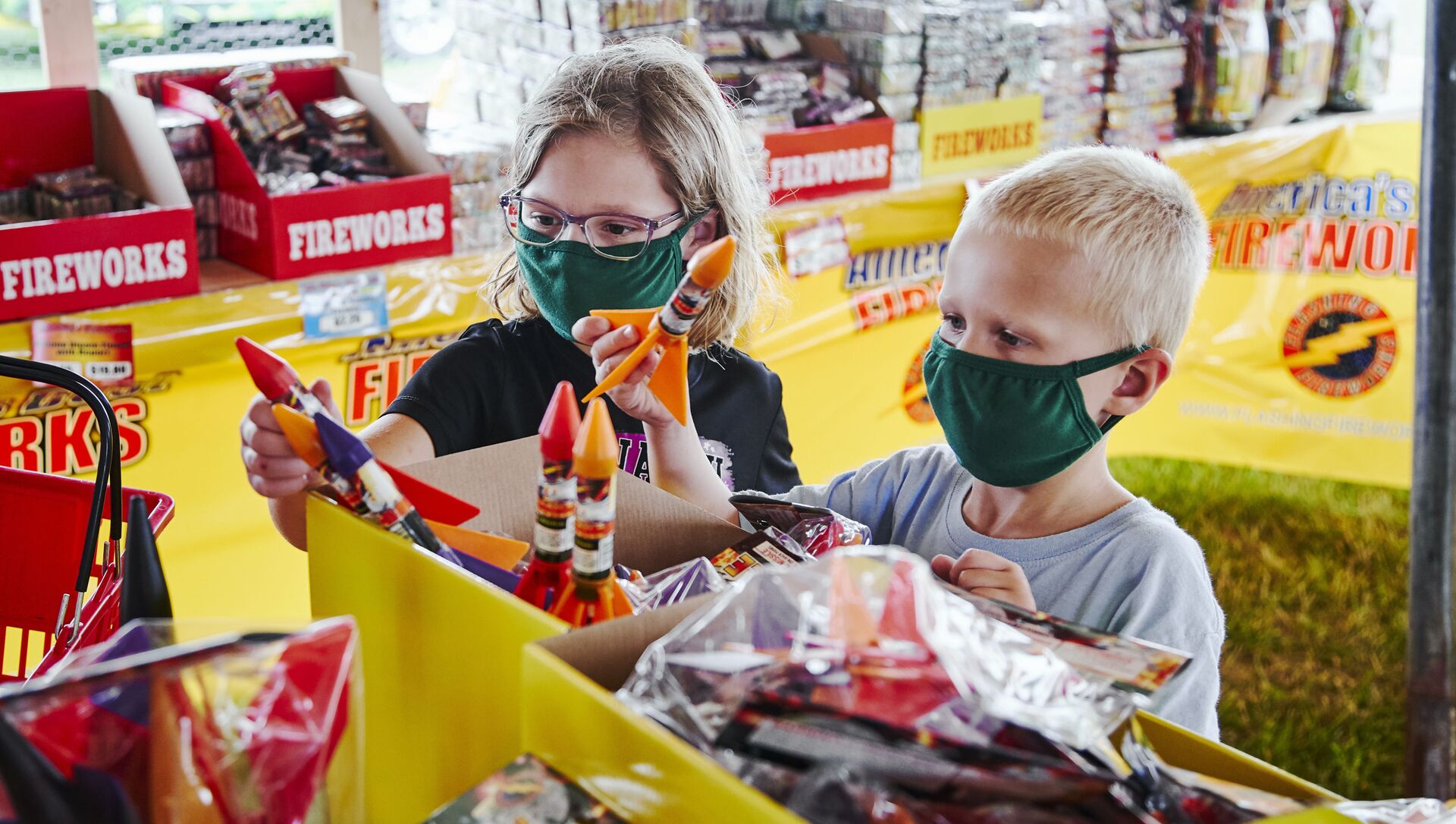Byram Bridle, an associate professor of viral immunology at the University of Guelph, looks at how COVID has impacted the development of children's developing immune systems.
Sputnik: How have COVID lockdowns impacted the development of kids' immune systems?
Byram Bridle: Our immune systems are designed to interact with our microbial world early in life, this is critical for the normal development of our immune systems. While our immune system is maturing, it's very important that our immune system be exposed to all of the microbes that are in our environment. This allows your immune system to become educated and learn to differentiate between the good microbes and the bad microbes. This helps your immune system figure out when it's appropriate to respond to something that's potentially dangerous for our bodies, and if this education of the immune system does not occur, our immune systems can become dysregulated and can potentially start responding inappropriately to things that are not dangerous, and this would reveal itself in immunological conditions such as hypersensitivities, like allergies, and asthma. It might also reveal itself in the form of autoimmune diseases, where our immune system inappropriately starts attacking cells of our own body.
Sputnik: How has increased urbanisation contributed to the problems created by COVID, surrounding the development of a child's immune system?
Byram Bridle: In many countries, as urbanisation has increased over the decades, what we have seen is an increase in conjunction with that in these immunological disorders, like allergies, asthma, and autoimmune diseases; and the reason is, as more of us grow up in these artificial, I like to refer to them as '"concrete jungles" (large cities), kids are not being exposed like they normally would to the environment, and indeed in these countries that have a lot of urbanisation, we see an increased frequency. In a lot of countries, middle-income countries, these immunological disorders have been declared actually a growing epidemic, they're increasing in incidence as time goes on, and as you can imagine this lockdown now has dramatically accentuated this. So, as an immunologist, I'm now quite concerned because we are now over a year into this pandemic with no end in sight in terms of these lockdown policies, and so when you look at what we've done to our children; they have been incredibly isolated from their natural environments, they've been isolated from many of the people that they would normally be interacting closely with, and we've taken this to an extreme degree when you think about the extensive use of things like hand sanitisers, and we're even putting masks on our children and filtering the air that they breathe. So, these young children and adolescents simply are not being exposed to the natural environment like they need to be for proper immunological development.
Sputnik: Should we be concerned by the problems that have arisen over the last 12 months, and are they irreversible?
Byram Bridle: In essence, the only people who will be unaffected in terms of immunological development will be the adults during this lockdown and that's because our immune systems are fully matured, so there's no more education of our immune systems to occur. Those who are adolescent and younger could potentially, of course not everybody will be affected there's a lot of variables that go into this including genetic predispositions, etc. but adolescents and younger could certainly be affected by this and the younger the child is the greater the chance that they will be affected, and again that's simply because many more components of our immune system are maturing earlier in life and fewer as we enter adolescence. So, the younger the child, the greater the damage could potentially be. This is why I want parents to be aware of this so that everybody can simply make the most informed decisions. Who I really want to get this message to as well are the policymakers, so that they can understand the consequences of some of these isolation policies on our children, because indeed what I'm predicting is in the future, and this won't reveal itself for years to come, but some of the children who have been isolated so severely in this pandemic will go on to develop these immunological conditions and they'll be dealing with those for the rest of their lives.

